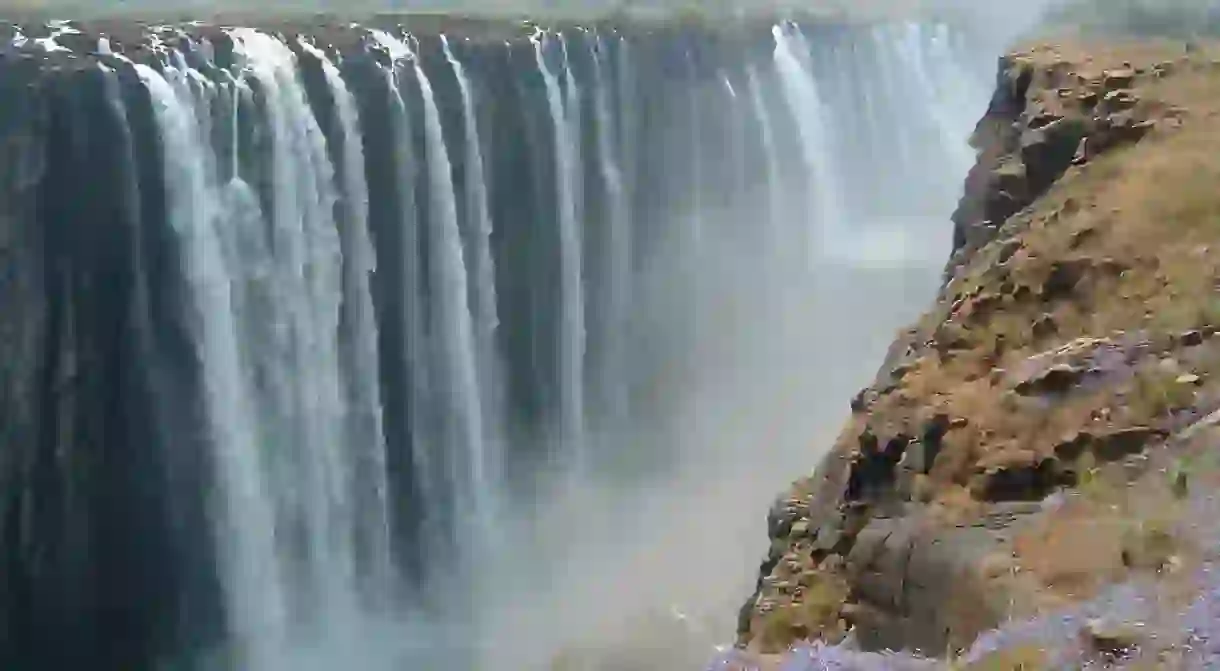The Best Things to Do Outdoors in Zimbabwe

Famed for its warm and welcoming people and for its 320 days of sunshine per year, Zimbabwe, a landlocked country in the south of Africa, is the perfect holiday destination for lovers of the great outdoors. From the bustling wildlife in the country’s grasslands to ancient sites, here are the best outdoor experiences around.
Victoria Falls
Natural Feature

Hwange National Park
Natural Feature, Park

Kariba Dam
Natural Feature

Located in the north-east on the border of Zimbabwe and Zambia, Kariba Dam is an imposing sight. The shore of Kariba is a wildlife haven in many places with a number of parks and wilderness areas allocated along the waterfront – the shoreline floodplains provide food for herbivores, which in turn fall prey to predators. Cruising close to the shore in a boat gives a unique perspective of the wildlife that inhabits the reserves of Kariba. Elephants are numerous, and it is even possible to see lions from the safety of the water. Tour operators charge different amounts for the houseboats and boat cruises.
Great Zimbabwe
Archaeological site, Ruins

Located in the ancient southern city of Masvingo, Great Zimbabwe is the place to visit for those who love history and monuments. Built 900 years ago, the massive stone structures create a breathtaking view, leaving visitors to wonder about the historical events that took place many centuries ago. The creative workmanship of these walls which were built without mortar leaves many visitors in awe. The country’s name is derived from this monument, which means ‘huts of stone’ in the local language. There is also the Great Zimbabwe Museum and Great Zimbabwe Hotel nearby to the site. Entry costs USD$15 for international visitors and USD$5 for locals.
Matobo National Park
Archaeological site, Natural Feature, Park, Ruins

Located about 35 km (21.8 miles) from Bulawayo, Matobo National Park was established in 1953 and was awarded World Heritage Status in June 2003. The park is an Intensive Protection Zone for endangered rhinoceros, and is also rich in cultural history as seen across its numerous cultural and historical sites. The park is well known for its unique balancing rock features with the popular ‘mother and child’ balancing rocks. It costs USD$15 for international tourists and USD$5 for locals to gain access.
Chinhoyi Caves
Natural Feature

These caves made of dolomite and limestone, and are located about 135 km (84 miles) northwest of Harare, close to the town of Chinhoyi. The main cave contains a large pool known as the ‘sleeping pool’ – water in the main section of the sleeping pool is between 80 – 91 metres (266 – 295 feet) deep, fluctuating due to seasonal rainfall. The exact depth of the water system is unknown, but is estimated to be around 172 metres (564 feet). Divers can dive into the pool, which falls under management of the Zimbabwe National Park authority. Access costs USD$15 for international tourists and USD$3 for others.













